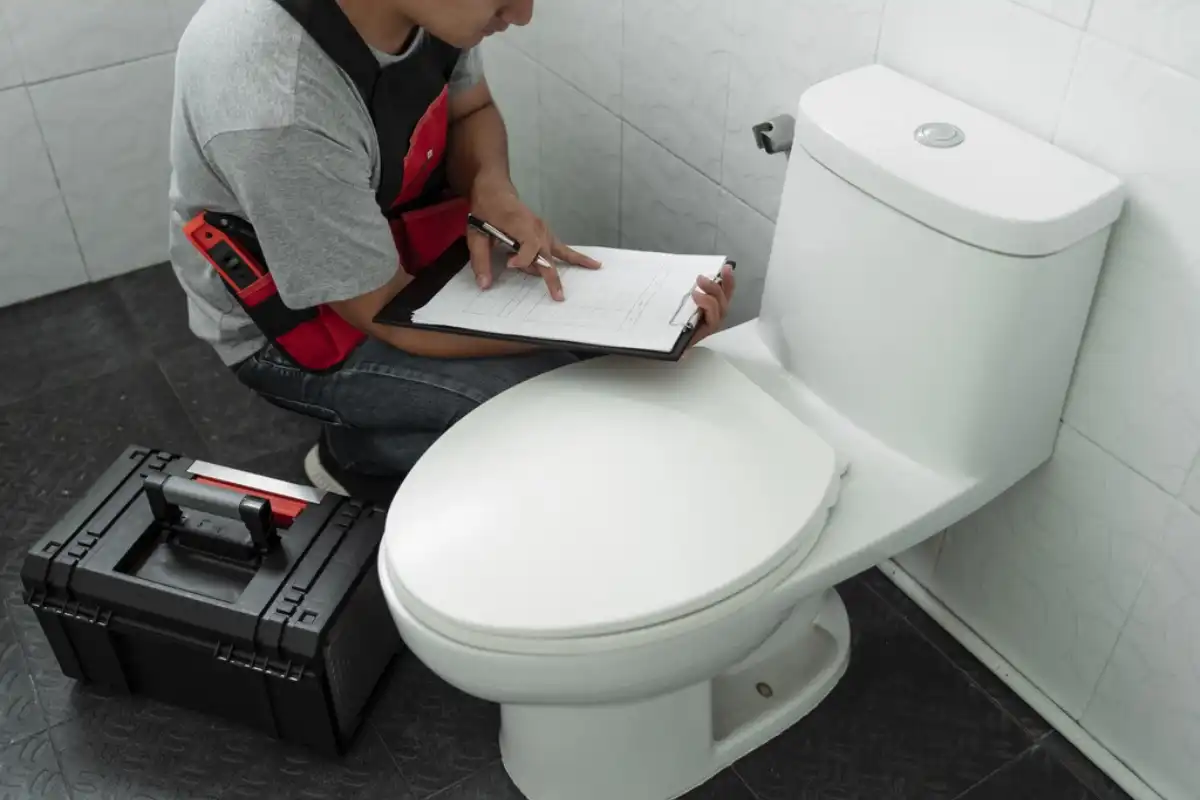
There are different types of plumbing problems, but the most common ones are water heater and garbage disposal issues, running toilets, clogged drains and toilets, low water pressure, and leaky faucets and pipes. People don’t usually realize the importance of their plumbing system until it develops a problem.
Slow drains, dripping faucets, and other plumbing issues are common, especially as your home ages, which is completely natural. In some cases, you can solve these issues using DIY approaches, but some problems are complex and require the help of a professional.
Understanding common plumbing issues and how you can handle them is important. This will also make it easier for you to know when to call a plumber. In this article, you’ll learn more about the five most common plumbing problems, their solutions, and why professional plumbers are the best ones to call during a plumbing emergency.
Clogged Drains and Toilets
You know you have clogged drains when you notice water backing up when you’re taking a shower or emptying your sink. Signs of clogged toilets can be seen almost immediately, as the water backs up within the toilet bowl, and in some cases, it may overflow. Restoring your drains and toilet can be achieved by clearing the blockages, and you can do this on your own or call a plumber.
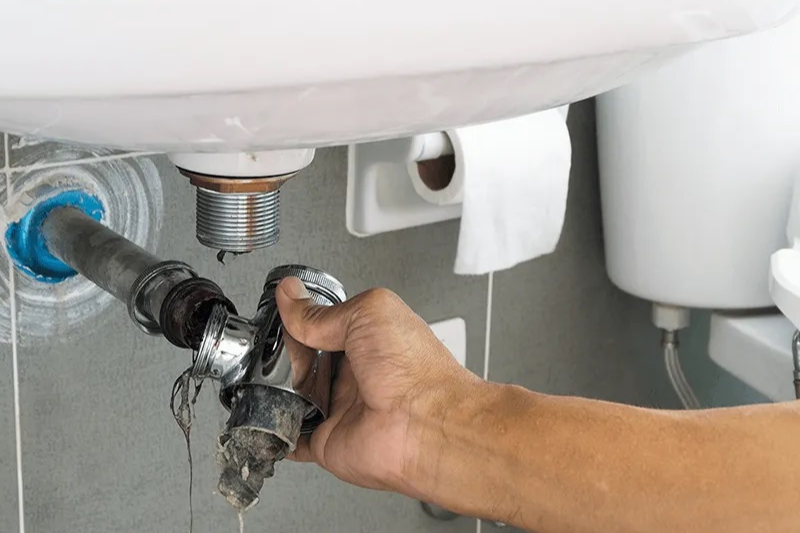
Causes of clogged drains and toilets
This problem occurs when there’s a complete or partial block in your drains. In showers and sinks, items like hair, shampoo lids, and soap scum are the most common culprits. The problem in toilets usually occurs when insoluble items get flushed in the toilet. These solid items find it difficult to move through the pipe and alter the flow of water through the pipes.
Fixing the problem
The first step to take is to get a plunger to remove the clog. You can use this tool on both drains and toilets, and it works by utilizing air pressure to loosen clogs. Another option to consider is to use a chemical drain cleaner, especially if the plunger is ineffective. You can also buy a plumbing snake and use it to dislodge the clog.
Tips to avoid drain and toilet clogs
To prevent this problem, you need to ensure that you only flush dissolvable liquid down your drains. Also, watch your kids closely to ensure their toys don’t go down your toilet. Do not flush hair down your toilet or sink because this can cause problems.
Leaky Faucets and Pipes
This is another common plumbing issue faced in most homes and apartments. Leaky faucets are more of a waste of money and a nuisance than other plumbing emergencies, and it’s important to fix these leaks quickly. Many damages can occur due to leaky pipes, especially if you don’t notice it early enough.
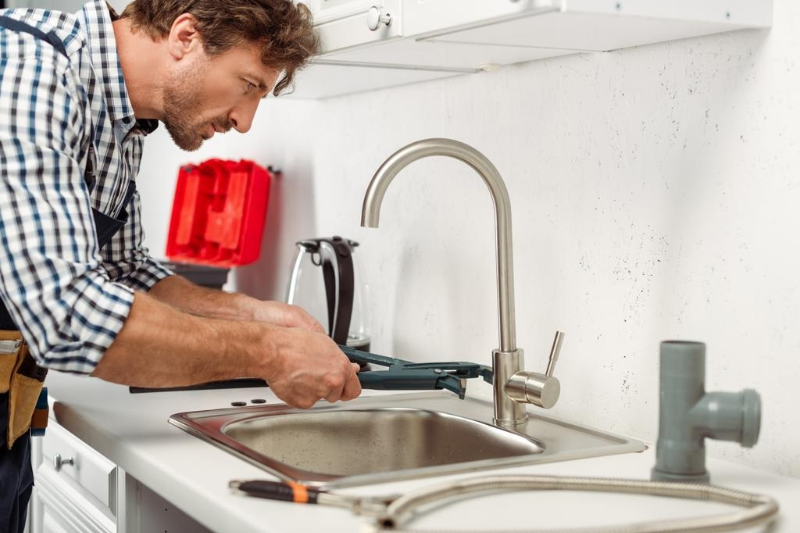
Causes of leaky faucets and pipes
This problem is mostly a result of damage to washers that provide the seal on the tap. These damages include stiffening, tearing, or dislodging, and when it occurs, the washer becomes unable to provide a tight seal. With that, it becomes easier for water to drip through the faucets, and with time, the valve starts to corrode or wear.
Leaks in pipes occur due to high water pressure, shifting, deterioration, or other damages.
Fixing the problem
The best way to fix this problem is by replacing washers at the point of the leak. Pipe leak repairs need special tools, and as such, you may have to call a plumber.
Tips to avoid pipe and faucet leaks
Avoiding wear and tear that results from regular use is not always easy, and leaking faucets are bound to happen with time. Even though it’s difficult to avoid this problem, you can perform regular inspections to ensure you catch leaks in your piping immediately.
Water Heater Issues
These issues are also easy to spot, and the main thing to look at is the temperature of the water. Noises, puddles of water, and discolored water coming out of the heater are signs to look out for as well. These issues are often easy to troubleshoot, but it’s best to get a professional to avoid the potential dangers involved.
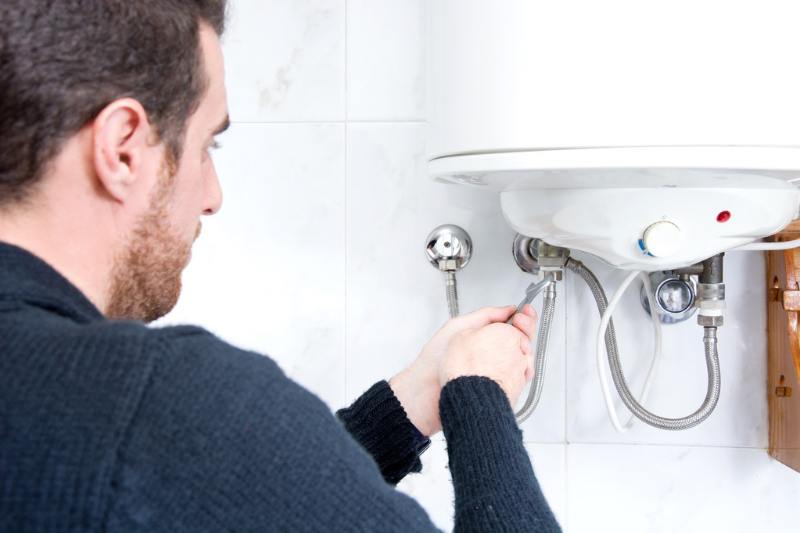
Causes of water heater issues
Leaks and mineral deposits are the main causes of issues in water heaters. The deposits alter the heating efficiency, and leaks can reduce the amount of hot water supplied. Strange sounds in the heater are caused by the heating and exploding of accumulated particles in the heater.
Fixing the problem
For heaters that run on gas, the first thing to check is the pilot light and ensure that it’s not on. Also, check the temperature setting to ensure it wasn’t accidentally turned down. If you suspect mineral deposits, you might want to drain the water in the heater to remove sediments. Alternatively, you can call a professional to diagnose and solve the problem.
Tips to avoid water heater issues
Maintaining hot water in your heater and ensuring it runs efficiently cannot be overemphasized, especially if you live in hotter regions. To avoid water heater issues, regularly inspect the pressure valve, and flush the tank regularly. Also, look out for drips and leaks around the tank.
Low Water Pressure
This plumbing problem mostly occurs in old buildings but can also happen in newer ones. The problem can be sudden or occur gradually and worsen over time, making using the shower or taps difficult.
Causes of low water pressure
This problem is due to different causes, including a water main break or a leaky pipe within your home. The presence of accumulated sediments or build-up minerals in the faucet, showerheads, or pipes can also cause low water pressure.
Fixing the problem
If you notice this problem, the first thing to check is the showerheads or aerators where the problem occurs. Unscrew these components, and clean them thoroughly. You can also place the aerator in vinegar to loosen accumulated particles. If the issue is beyond this, we advise calling a plumber to help restore water pressure in your home.
Tips to avoid low water pressure
To prevent this problem from occurring, the best thing to do is to install a filtration system. This will effectively keep out minerals and other particles and prevent the accumulation of these particles.
Running Toilets
Plumbing problems in the toilet come in different forms, but a running toilet is likely to be one of the most annoying. Basically, the toilet functions properly, but water constantly runs, causing annoying sounds, and wasting water.
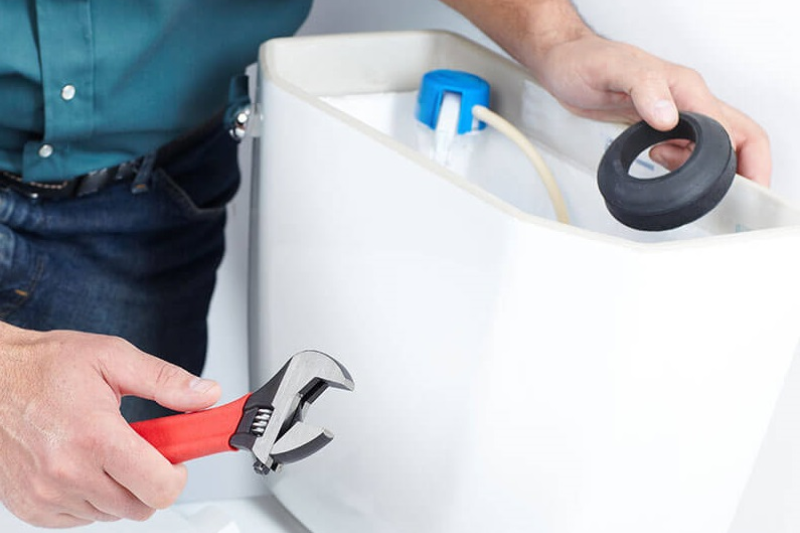
Causes of running toilet
This problem occurs when the inner component of the toilet stops working properly. The toilet’s flapper valve doesn’t provide a perfect fit, and this causes water to run continuously. Other causes include a leak, an imbalanced float, or a loose fill tube.
Fixing the problem
To fix this problem, ensure that the fill tube and flexible tube within the tank are attached properly and directed to the overflow tube. Also, check the chain on the flapper, and ensure it’s of the proper length and not tangled. You might need to replace the internal tank components if these simple fixes don’t work.
Tips to avoid running toilet
This toilet issue cannot be completely prevented, but you can ensure your toilet works properly by regularly inspecting its components.
When to Call a Plumber
We have highlighted five of the most common plumbing problems faced in most homes and DIY methods to fix these problems. Consider calling a professional plumber if the problem persists after trying all the solutions provided in this article.
When calling a plumber, the main thing to ensure is that you contact a reputable local plumber that is experienced, insured, and certified to handle all minor and major plumbing issues.
Sugar Bear Home Services Gets It Done, Just Right!
If you're looking for the highest quality, professional plumbing services, call our team today!















